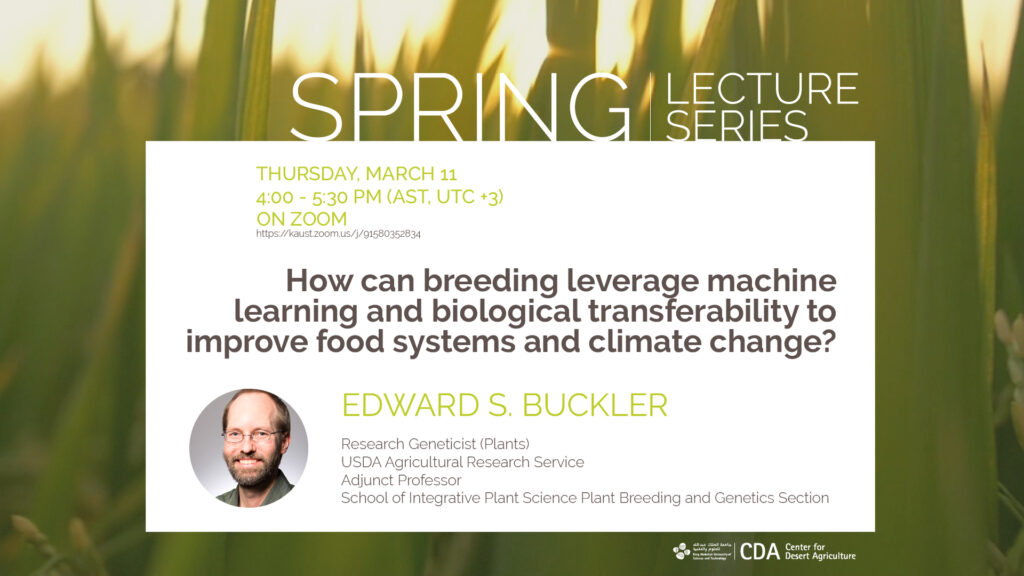
Thursday, March 11, 2021
4:00-5:30 p.m.
On Zoom
Password: 822233
How can breeding leverage machine learning and biological transferability to improve food systems and climate change?
By Edward S. Buckler
Research Geneticist (Plants), USDA Agricultural Research Service
Adjunct Professor, School of Integrative Plant Science Plant Breeding and Genetics Section
Abstract
The demands of food production, fuels, nutrition, and climate change require that thousands of species undergo genomic selection over the next two decades. The approaches for making genomic selection models are too inefficient for scaling to thousands of species. Here, we use evolution and machine learning to develop robust models across the central dogma of molecular biology that work across species. Evolutionary comparisons over 70 million years are efficiently identifying key distal regulatory elements. Maize and Arabidopsis diverged 150 million years ago, yet our initial machine learning models predicting regulatory environments have significant transferability. Finally, models trained in bacteria and archaea are showing promise for understanding plant protein adaptations. The most significant obstacle to building transferable models may be the social aspect of getting disparate communities of scientists to make mutually interoperable and transferable models.
About the Speaker
Edward S. Buckler is a USDA-ARS Research Geneticist and adjunct professor in Plant Breeding and Genetics at Cornell University with an educational background in molecular evolution and archaeology. His group’s research uses genomic, computational, and field approaches to dissect complex traits and accelerate breeding in maize, sorghum, cassava, and a wide range of other crops. With these technologies applied to over 2000 species, now the Buckler group focuses on exploring ways to re-engineer global agricultural production systems to ensure food security, improve nutrition, and respond to climate change. With the USDA-ARS, he leads an informatics and genomics platform to help accelerate breeding for specialty crops and animals. His contributions to quantitative genetics and genomics were recognized with election to the US National Academy of Sciences and as recipient of the inaugural NAS Food and Agriculture Award.
Click here to view the full Spring Lecture Series schedule.
Brought to you by the Center for Desert Agriculture

